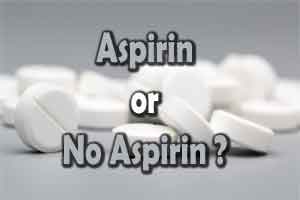- Home
- Editorial
- News
- Practice Guidelines
- Anesthesiology Guidelines
- Cancer Guidelines
- Cardiac Sciences Guidelines
- Critical Care Guidelines
- Dentistry Guidelines
- Dermatology Guidelines
- Diabetes and Endo Guidelines
- Diagnostics Guidelines
- ENT Guidelines
- Featured Practice Guidelines
- Gastroenterology Guidelines
- Geriatrics Guidelines
- Medicine Guidelines
- Nephrology Guidelines
- Neurosciences Guidelines
- Obs and Gynae Guidelines
- Ophthalmology Guidelines
- Orthopaedics Guidelines
- Paediatrics Guidelines
- Psychiatry Guidelines
- Pulmonology Guidelines
- Radiology Guidelines
- Surgery Guidelines
- Urology Guidelines
Cardiology Update- ASPIRIN or NO ASPIRIN BEFORE CABG , ATACAS TRIAL

Most patients with coronary artery disease receive aspirin for primary or secondary prevention of myocardial infarction, stroke, and death. Aspirin poses a risk of bleeding in patients undergoing surgery, but it is unclear whether aspirin should be stopped before coronary artery surgery.
Myles et al conducted the multicenter, double-blind, randomized trial, ATACAS (Aspirin and Tranexamic Acid for Coronary Artery Surgery), to determine whether aspirin would reduce the occurrence of death and thrombotic complications in at-risk patients undergoing CABG
The researchers used a 2-by-2 factorial trial design to randomly assign patients who were scheduled to undergo coronary artery surgery and were at risk for perioperative complications to receive aspirin or placebo and tranexamic acid or placebo.
Patients were randomly assigned to receive 100 mg of aspirin or matched placebo preoperatively. The primary outcome was a composite of death and thrombotic complications (nonfatal myocardial infarction, stroke, pulmonary embolism, renal failure, or bowel infarction) within 30 days after surgery.
Among 5784 eligible patients, 2100 were enrolled; 1047 were randomly assigned to receive aspirin and 1053 to receive placebo. A primary outcome event occurred in 202 patients in the aspirin group (19.3%) and in 215 patients in the placebo group (20.4%) ). Major hemorrhage leading to reoperation occurred in 1.8% of patients in the aspirin group and in 2.1% of patients in the placebo group, and cardiac tamponade occurred at rates of 1.1% and 0.4%, respectively.
The results made reserachers concluded that among patients undergoing coronary artery surgery, the administration of preoperative aspirin resulted in neither a lower risk of death or thrombotic complications nor a higher risk of bleeding than that with placebo
You can read the full article by clicking on the following link
Myles PS, Smith JA, Forbes A, et al (Wallace S, senior author). Stopping vs. continuing aspirin before coronary artery surgery. N Engl J Med. 2016; 374: 728-37.
Myles et al conducted the multicenter, double-blind, randomized trial, ATACAS (Aspirin and Tranexamic Acid for Coronary Artery Surgery), to determine whether aspirin would reduce the occurrence of death and thrombotic complications in at-risk patients undergoing CABG
The researchers used a 2-by-2 factorial trial design to randomly assign patients who were scheduled to undergo coronary artery surgery and were at risk for perioperative complications to receive aspirin or placebo and tranexamic acid or placebo.
Patients were randomly assigned to receive 100 mg of aspirin or matched placebo preoperatively. The primary outcome was a composite of death and thrombotic complications (nonfatal myocardial infarction, stroke, pulmonary embolism, renal failure, or bowel infarction) within 30 days after surgery.
Among 5784 eligible patients, 2100 were enrolled; 1047 were randomly assigned to receive aspirin and 1053 to receive placebo. A primary outcome event occurred in 202 patients in the aspirin group (19.3%) and in 215 patients in the placebo group (20.4%) ). Major hemorrhage leading to reoperation occurred in 1.8% of patients in the aspirin group and in 2.1% of patients in the placebo group, and cardiac tamponade occurred at rates of 1.1% and 0.4%, respectively.
The results made reserachers concluded that among patients undergoing coronary artery surgery, the administration of preoperative aspirin resulted in neither a lower risk of death or thrombotic complications nor a higher risk of bleeding than that with placebo
You can read the full article by clicking on the following link
Myles PS, Smith JA, Forbes A, et al (Wallace S, senior author). Stopping vs. continuing aspirin before coronary artery surgery. N Engl J Med. 2016; 374: 728-37.
Next Story
NO DATA FOUND

Disclaimer: This site is primarily intended for healthcare professionals. Any content/information on this website does not replace the advice of medical and/or health professionals and should not be construed as medical/diagnostic advice/endorsement or prescription. Use of this site is subject to our terms of use, privacy policy, advertisement policy. © 2020 Minerva Medical Treatment Pvt Ltd